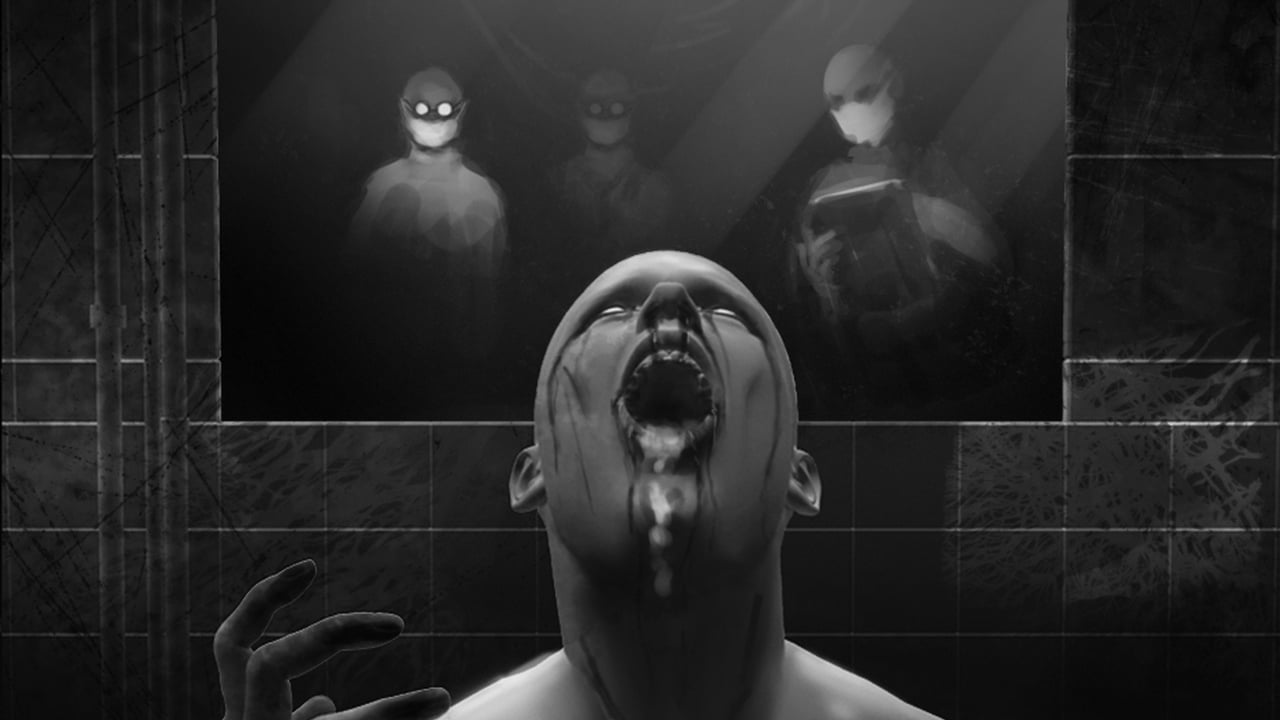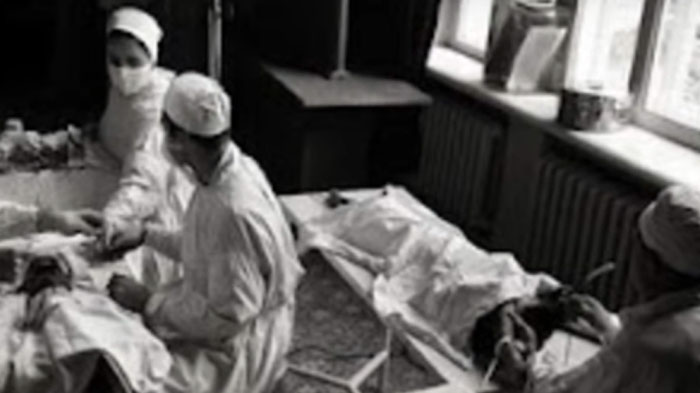
Toward the end of the 1940s, Soviet researchers sealed five prison inmates in an airtight chamber and dosed them with an experimental stimulant gas to test the effects of prolonged sleep deprivation. Their behavior was observed via two-way mirrors and their conversations monitored electronically. They were promised their freedom if they could go entirely without sleep for 30 days.
The first few days of the experiment passed uneventfully. By the fifth day, however, the subjects began showing signs of stress and were overheard bemoaning their circumstances. They stopped conversing with their fellow inmates, choosing instead to whisper compromising information about one another into the microphones, apparently in an effort to win the favor of the researchers.
Paranoia set in.
On the ninth day the screaming began. First one subject, then another, was observed running around the chamber screaming at the top of his lungs for hours on end. Equally disconcerting was the reaction of the quieter subjects, who began ripping apart the books they’d been given to read, smearing the pages with feces, and plastering them over the mirrored windows so their actions could no longer be observed.Then, just as suddenly, the screaming stopped. The subjects ceased communicating altogether. Three long days passed without a sound from inside the chamber. Fearing the worst, the researchers addressed the subjects via the intercom. “We are opening the chamber to test the microphones,” they said. “Step away from the door and lie flat on the floor or you will be shot. Compliance will earn one of you your immediate freedom.”
A voice from inside answered, “We no longer want to be freed.”
Two more days passed without contact of any kind as the scientists debated what to do next. Finally, they decided to terminate the experiment. At midnight on the fifteenth day the stimulant gas was flushed from the chamber and replaced with fresh air in preparation for the subjects’ release. Far from being pleased at the prospect of leaving the chamber, the subjects began screaming as if in fear for their lives. They begged to have the gas turned back on. Instead, the researchers unsealed the door to the chamber and sent armed soldiers inside to retrieve them. Nothing could have prepared them for the carnage they witnessed upon entering.
One subject was found dead, lying face-down in six inches of bloody water. Chunks of his flesh had been torn off and stuffed into the floor drain. All of the test subjects were found to have been severely mutilated, in fact. What’s worse, the wounds appeared to be self-inflicted. They had ripped open their own abdomens and disemboweled themselves with their bare hands.
Some had even eaten their own flesh.
The four who were still alive seemed terrified of falling asleep and refused to leave the chamber, again pleading with the researchers to turn the gas back on. When the soldiers attempted to remove the inmates by force, they fought back so ferociously they couldn’t believe their eyes. One suffered a ruptured spleen and lost so much blood there was literally nothing left for his heart to pump, yet continued flailing for a full three minutes until his lifeless body collapsed.
The remaining subjects were restrained and transported to a medical facility for treatment. The first to be operated on fought so furiously against being anesthetized that he tore muscles and broke bones during the struggle. As soon as the anesthetic took effect his heart stopped and he died. The rest underwent surgery without sedation. Far from feeling any pain, however, they laughed hysterically on the operating table — so hysterically that the doctors, perhaps fearing for their own sanity, administered a paralytic agent to immobilize them.

After surgery the survivors were asked why they had mutilated themselves, and why they so desperately wanted to go back on the stimulant gas. Each, in turn, gave the same answer: “I must remain awake.”
The researchers considered euthanizing them to obliterate every trace of the failed experiment, but were overruled by their commanding officer, who ordered that it be resumed immediately, with three of the researchers joining the inmates in the sealed chamber. Horrified at the prospect, the chief researcher pulled out a pistol and shot the commanding officer point blank. He then turned and shot one of the two surviving subjects. Pointing his gun at the last one left alive, he asked, “What are you? I must know!”
“Have you forgotten so easily?” the subject said, smiling. “We are you. We are the madness that lurks within you all, begging to be free at every moment in your deepest animal mind. We are what you hide from in your beds every night. We are what you sedate into silence and paralysis when you go to the nocturnal haven where we cannot tread.”
The researcher fired a bullet into his heart. The EEG monitor flat-lined as the subject murmured these last words: “So…nearly…free.”

by Francisco N. from Indio, CA
